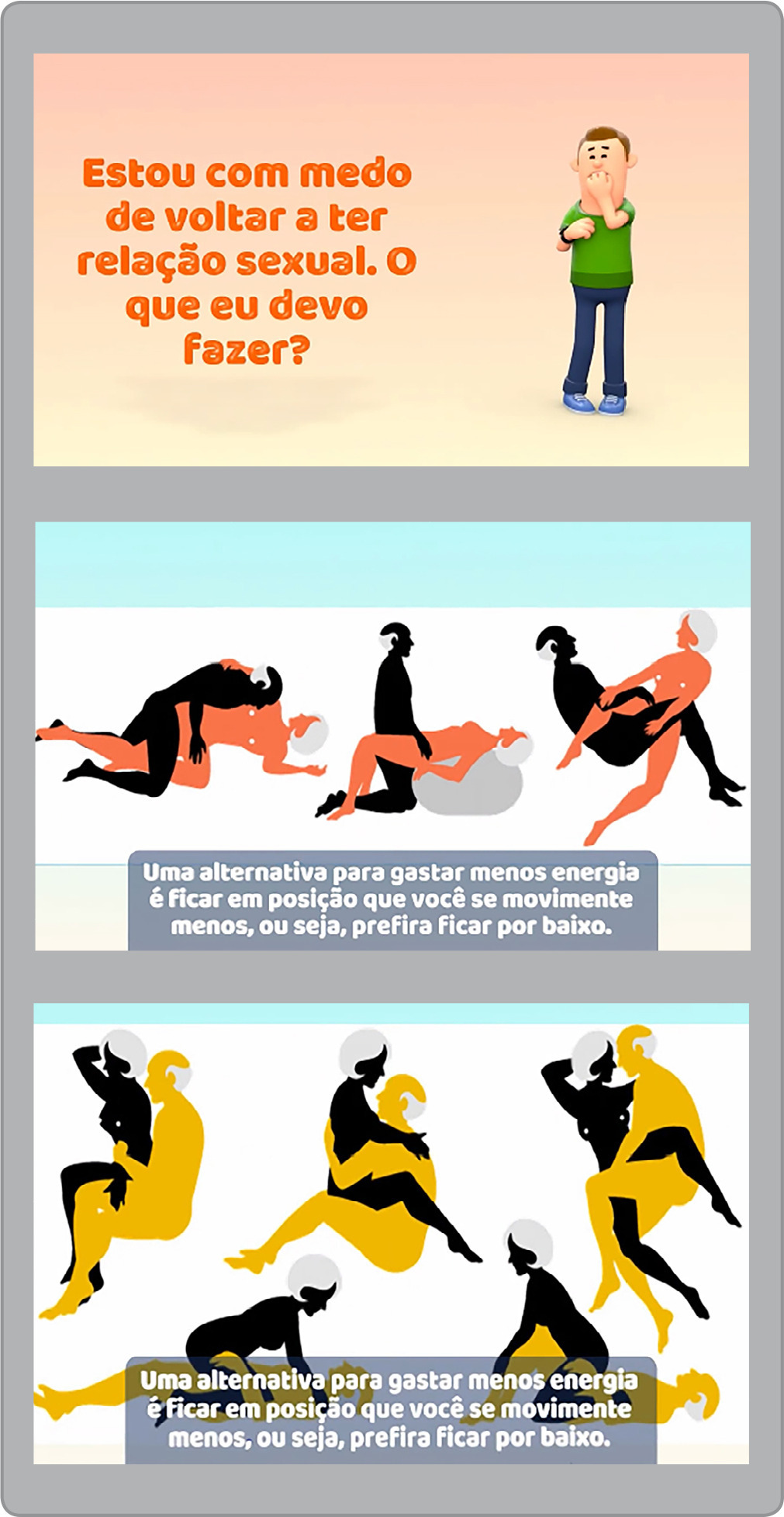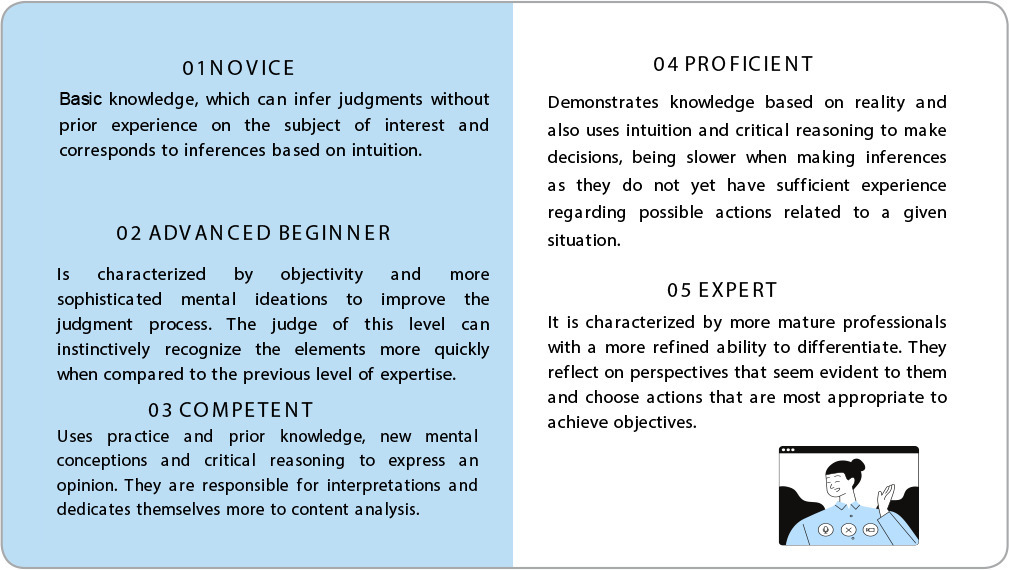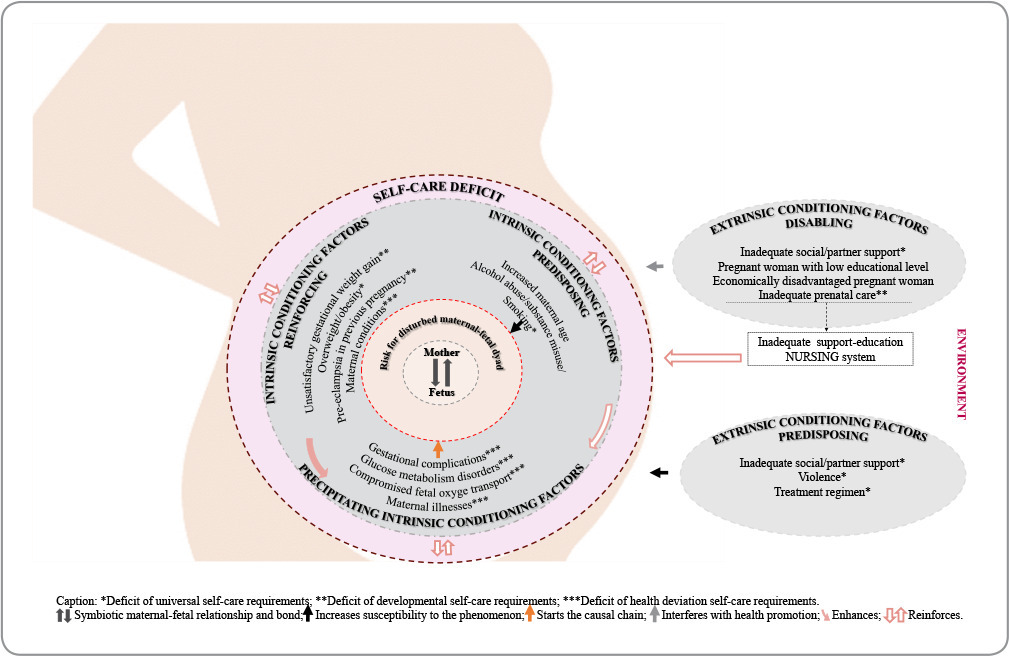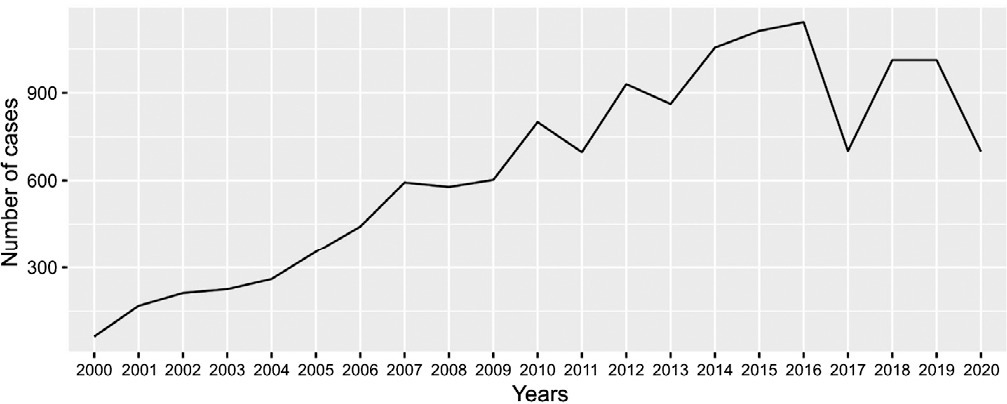-
REVIEW
Telenursing in the postoperative period: a scoping review
Revista Brasileira de Enfermagem. 2024;77(3):e20240066
07-29-2024
Abstract
REVIEWTelenursing in the postoperative period: a scoping review
Revista Brasileira de Enfermagem. 2024;77(3):e20240066
07-29-2024DOI 10.1590/0034-7167-2024-0066
Views0See moreABSTRACT
Objectives:
to map available evidence on telenursing use in the postoperative period and its impact on patient outcomes.
Methods:
a scoping review, conducted according to the JBI model and the PRISMA-ScR checklist. The search was carried out in the CINAHL, Embase, LILACS, PubMed, Web of Science, SciELO, Scopus and Cochrane Library databases.
Results:
twelve studies were included, published between 2011 and 2023, 66.6% of which were in developed countries. Of the positive outcomes, we highlight improved levels of disability, autonomy and quality of life, lower rates of post-operative complications, pain and reduced costs. Telephone monitoring was the most widely used modality, but there were few studies in the pediatric context and in Brazil.
Conclusions:
of the studies, 11 (91.6%) identified at least one positive outcome in telenursing use and none showed negative aspects in the postoperative period. The role of nurses in digital health needs further study.

-
ORIGINAL ARTICLE
Sexual counseling for people with acute coronary syndrome: educational video development
Revista Brasileira de Enfermagem. 2024;77(3):e20230416
07-29-2024
Abstract
ORIGINAL ARTICLESexual counseling for people with acute coronary syndrome: educational video development
Revista Brasileira de Enfermagem. 2024;77(3):e20230416
07-29-2024DOI 10.1590/0034-7167-2023-0416
Views0See moreABSTRACT
Objective:
to assess validity evidence of an educational video on safe sexual activity after acute coronary syndrome.
Method:
study in three phases: video development; content validity analysis by 11 experts; and analysis of validity based on response processes by seven people with coronary disease. The content validity ratio (CVR) was calculated with critical values for the second phase of 0.63 and for the third of 1.0.
Results:
the video addressed the importance of resuming sexual activity and positions that consume less energy, clinical warning signs, the importance of adhering to treatment and a welcoming environment for sexual practice. A CVR above the critical value was obtained with a total of 4 minutes and 41 seconds.
Conclusion:
the educational video brings together adequate content validity evidence and can be used as a tool for patients after acute coronary syndrome.

-
ORIGINAL ARTICLE
Evaluation of software technical quality for collecting data from patients under palliative care
Revista Brasileira de Enfermagem. 2024;77(3):e20230435
07-29-2024
Abstract
ORIGINAL ARTICLEEvaluation of software technical quality for collecting data from patients under palliative care
Revista Brasileira de Enfermagem. 2024;77(3):e20230435
07-29-2024DOI 10.1590/0034-7167-2023-0435
Views0See moreABSTRACT
Objectives:
to evaluate software technical quality for collecting data from patients under palliative care.
Methods:
this is methodological technology evaluation research, according to the technical standard International Organization for Standardization/International Electrotechnical Commission 25040-2011, developed from August 2021 to August 2023. Eight nurses and eight information technology professionals participated as judges, who evaluated six quality characteristics and 23 subcharacteristics. Items that reached a percentage of agreement greater than 70% were considered suitable.
Results:
the characteristics evaluated by nurses/information technology professionals received the following percentages of agreement, respectively: functional suitability (94%-84%); reliability (100-70%); usability (89.9-66.8%); performance efficiency (95.8%-86.1%); compatibility (95.8-79.6%); and safety (96%-83.4%).
Conclusions:
the software was considered suitable in quality evaluation to offer support to nurses in collecting patient data under palliative care, with the potential to operationalize the first Nursing Process stage.

-
ORIGINAL ARTICLE
Mental health of parents of children and adolescents who require special health care
Revista Brasileira de Enfermagem. 2024;77(3):e20230457
07-29-2024
Abstract
ORIGINAL ARTICLEMental health of parents of children and adolescents who require special health care
Revista Brasileira de Enfermagem. 2024;77(3):e20230457
07-29-2024DOI 10.1590/0034-7167-2023-0457
Views0See moreABSTRACT
Objective:
To identify the manifestations presented by parents of children and adolescents who require special health attention that can impact their mental health.
Methods:
exploratory, qualitative research, based on the concept of vulnerability, with data collection carried out through interviews with 18 parents of children and adolescents with special health care needs, hospitalized in the pediatric ward of a hospital in Paraná, between May/2017 and May/ 2018. Data analyzed by inductive thematic analysis.
Results:
parents experienced situations of vulnerability when providing care at home, with repercussions on their mental health, expressed by manifestations of lack of protection, anxiety and depression.
Final considerations:
It is important that health professionals seek to expand actions to promote care and reduce situations that generate threats, insecurities, concerns and damage to the health of parents, which can impact and further weaken care for children and adolescents who need attention especially health.
-
ORIGINAL ARTICLE
Disrupted mother-fetus dyad risk in high-risk pregnancies: a Middle-Range Theory
Revista Brasileira de Enfermagem. 2024;77(3):e20230464
07-29-2024
Abstract
ORIGINAL ARTICLEDisrupted mother-fetus dyad risk in high-risk pregnancies: a Middle-Range Theory
Revista Brasileira de Enfermagem. 2024;77(3):e20230464
07-29-2024DOI 10.1590/0034-7167-2023-0464
Views0See moreABSTRACT
Objectives:
to develop and evaluate a Middle-Range Theory for the nursing diagnosis “Disrupted Mother-Fetus Dyad Risk” in high-risk pregnancies.
Methods:
this methodological study was conducted in two stages: theory development and evaluation. Dorothea Orem’s General Nursing Model was used as the theoretical-conceptual foundation. Evaluation was conducted using the Delphi method with seven judges, and consensus was achieved when the Content Validity Index of the evaluated items was ≥ 0.80.
Results:
the theory identified 20 elements of the nursing diagnosis “Disrupted Mother-Fetus Dyad Risk” (10 risk factors, 4 at-risk populations, and 6 associated conditions), 14 propositions, and 1 pictogram. After two rounds of evaluation, the theory was considered consistent, with consensus reached for all items, each achieving a Content Validity Index ≥ 0.80.
Conclusions:
the Middle-Range Theory included biopsychosocial factors explaining the nursing phenomenon “Disrupted Mother-Fetus Dyad Risk,” which aids in nurses’ diagnostic reasoning.

-
ORIGINAL ARTICLE
Completeness of variables in Hospital-Based Cancer Registries for prostatic malignant neoplasm
Revista Brasileira de Enfermagem. 2024;77(3):e20230467
07-29-2024
Abstract
ORIGINAL ARTICLECompleteness of variables in Hospital-Based Cancer Registries for prostatic malignant neoplasm
Revista Brasileira de Enfermagem. 2024;77(3):e20230467
07-29-2024DOI 10.1590/0034-7167-2023-0467
Views0See moreABSTRACT
Objectives:
to analyze the completeness of variables from Hospital-Based Cancer Registries of cases of prostate neoplasm in the Oncology Care Network of a Brazilian state between 2000 and 2020.
Methods:
an ecological time series study, based on secondary data on prostate cancer Hospital-Based Cancer Registries prostate. Data incompleteness was classified as excellent (<5%), good (between 5%-10%), fair (10%-20%), poor (20%-50%) and very poor (>50%), according to the percentage of lack of information.
Results:
there were 13,519 cases of prostate cancer in the Hospital-Based Cancer Registries analyzed. The variables “family history of cancer” (p<0.001), “alcoholism” (p<0.001), “smoking” (p<0.001), “TNM staging” (p<0.001) had a decreasing trend, while “clinical start of treatment” (p<0.001), “origin” (p=0.008) and “occupation” (p<0.001) indicated an increasing trend.
Conclusions:
most Hospital-Based Cancer Registries variables showed excellent completeness, but important variables had high percentages of incompleteness, such as TNM and clinical staging, in addition to alcoholism and smoking.

-
ORIGINAL ARTICLE
Contribution of informal caregivers to self-care in individuals with heart failure
Revista Brasileira de Enfermagem. 2024;77(3):e20230492
07-29-2024
Abstract
ORIGINAL ARTICLEContribution of informal caregivers to self-care in individuals with heart failure
Revista Brasileira de Enfermagem. 2024;77(3):e20230492
07-29-2024DOI 10.1590/0034-7167-2023-0492
Views0See moreABSTRACT
Objectives:
to evaluate the contribution of informal caregivers to the self-care of individuals with heart failure.
Methods:
a cross-sectional study was conducted with 87 caregivers from March to October 2022 in the city of João Pessoa/PB. The caregivers’ contribution was assessed using the Caregiver Contribution to Self-Care of Heart Failure Index instrument. Scores ≥ 70 points indicate adequate contribution. Data were analyzed using descriptive statistics and Spearman’s correlation.
Results:
the sample consisted of 81.6% female caregivers. Median scores obtained for the self-care contribution scales were: 63.3 for maintenance; 55.5 for management; and 66.6 for confidence. Caregivers never or rarely recommended monitoring body weight, regular physical exercise, extra use of diuretics, and fluid restriction.
Conclusions:
informal caregivers showed inadequate contribution in the areas of maintenance, management, and confidence in self-care of individuals with heart failure.
-
REVIEW
Profile of scientific production on nursing technology construction, validity and application: a bibliometric study
Revista Brasileira de Enfermagem. 2024;77(3):e20230452
07-29-2024
Abstract
REVIEWProfile of scientific production on nursing technology construction, validity and application: a bibliometric study
Revista Brasileira de Enfermagem. 2024;77(3):e20230452
07-29-2024DOI 10.1590/0034-7167-2023-0452
Views0See moreABSTRACT
Objective:
to analyze the profile of scientific production on nursing technology construction, validity and application.
Methods:
this is a bibliometric study, carried out in six databases, based on the Methodi Ordinatio application, arranged in nine stages. To represent the findings, the VOSviewer® software was used.
Results:
346 studies were identified, obtained from BDENF, CINAHL, EMBASE, LILACS, PubMed/MEDLINE, Scopus and Web of Science. There was a predominance of the English language, and 20% of the authors hold more than 25% of studies. Only two journals account for 25% of studies in the period studied. Twenty-six studies were selected for the InOrdinatio classification. Nursing Process (23%) stood out among the studies. The most produced technology was software (27%), and 50% of works describe construction and validity.
Conclusions:
there is an emphasis on the creation of educational technologies, especially information technology. The data demonstrates opportunities for future research in the area.

-
Nurse-midwives reconfiguring care in the scope of labor and births in COVID-19 times
Revista Brasileira de Enfermagem. 2021;74:e20200863
04-14-2021
Abstract
Nurse-midwives reconfiguring care in the scope of labor and births in COVID-19 times
Revista Brasileira de Enfermagem. 2021;74:e20200863
04-14-2021DOI 10.1590/0034-7167-2020-0863
Views0See moreABSTRACT
Objectives:
to analyze how the nurse-midwives of maternity wards that were fields of practice for an improvement course in obstetrics have reorganized care in the context of labor and birth amidst the COVID-19 pandemic.
Methods:
this is a descriptive, exploratory and qualitative study carried out with nine nurse-midwives who are preceptors and collaborators in maternity wards that were fields of practice for an improvement course, between February and April 2020, through a semi-structured interview through WhatsApp®. Content analysis was used to treat the information.
Results:
the pandemic brought the need to reorganize work, with a focus on service training and maintenance of good practices in labor and birth, whose movement was intensely experienced, interfering in nurse-midwives’ mental health.
Conclusion:
nurse-midwives have faced the pandemic with concerns about maintaining safe care, focused on practices based on updated scientific evidence.
-
EDITORIAL
The era of precision medicine and its impact on nursing: paradigm shifts?
Revista Brasileira de Enfermagem. 2021;74(5):e740501
07-28-2021
Abstract
EDITORIALThe era of precision medicine and its impact on nursing: paradigm shifts?
Revista Brasileira de Enfermagem. 2021;74(5):e740501
07-28-2021DOI 10.1590/0034-7167.2021740501
Views0INTRODUCTIONThe large investment and development of research in genomics and molecular biology in the last two decades, especially after the conclusion of the Human Genome Project (HGP), has generated many expectations regarding its impact on the transformation from the conventional medicine paradigm to the precision medicine paradigm(–). The term precision medicine (PM) was used for […]See more -
ORIGINAL ARTICLE
Knowledge and health promotion practice of Family Health Strategy nurses
Revista Brasileira de Enfermagem. 2020;73(5):e20190362
07-06-2020
Abstract
ORIGINAL ARTICLEKnowledge and health promotion practice of Family Health Strategy nurses
Revista Brasileira de Enfermagem. 2020;73(5):e20190362
07-06-2020DOI 10.1590/0034-7167-2019-0362
Views0See moreABSTRACT
Objectives:
to analyze the knowledge and health promotion practice carried out by Family Health Strategy nurses.
Methods:
a descriptive study and qualitative approach. The study was conducted with 18 Family Health Strategy nurses from the city of São Carlos. Data were collected through semi-structured interviews and analyzed through thematic analysis. The study was approved by the Research Ethics Committee.
Results:
the data revealed that nurses had difficulties to conceptualize health promotion, and it is common to describe the definition of disease prevention. Nurses also reported developing group activities for health promotion; however, individual actions and consultations were still predominant.
Final Considerations:
it is necessary to develop sustainable strategies for collective health-promoting activities, in addition to strengthening multidisciplinary work and Continuing Education actions.

-
Quality of life and falls in elderly people: a mixed methods study
Revista Brasileira de Enfermagem. 2021;74:e20200400
05-21-2021
Abstract
Quality of life and falls in elderly people: a mixed methods study
Revista Brasileira de Enfermagem. 2021;74:e20200400
05-21-2021DOI 10.1590/0034-7167-2020-0400
Views0ABSTRACT
Objective:
to assess elderly people’s quality of life, understanding the social representations of falls.
Methods:
a convergent mixed methods research carried out at homes, with a sample of 134 elderly people. A structured questionnaire was used, covering sociodemographic variables and factors that indicated frailty and risk of falling. For quality of life assessment, Medical Outcomes Study Short-Form 36 and Theory of Social Representations, Abric’s structural approach were used, with data treated by dictionary of equivalent terms, processed in Evoc 2000, converging analytically according to Neuman.
Results:
quality of life impairment was identified in terms of physical, emotional and functional capacity. The elements of the possible central nucleus were fall, fear, and bruised-broken-bone.
Final considerations:
quality of life impairment can contribute to increase the number of falls, which has been shown to be an event present in elderly people’s lives through evocations. Understanding elderly people’s individual demands allows planning actions.
Keywords:Accident PreventionAccidental FallsCommunity Health NursingHealth Services for the AgedQuality of LifeSee more
-
REFLECTION
In defense of the Unified Health System in the context of SARS-CoV-2 pandemic
Revista Brasileira de Enfermagem. 2020;73:e20200247
07-10-2020
Abstract
REFLECTIONIn defense of the Unified Health System in the context of SARS-CoV-2 pandemic
Revista Brasileira de Enfermagem. 2020;73:e20200247
07-10-2020DOI 10.1590/0034-7167-2020-0247
Views0See moreABSTRACT
Objective:
To discuss the political and structural conditions for establishing the Unified Health System (UHS – Sistema Único de Saúde, SUS) in coping with the SARS-CoV-2 pandemic.
Methods:
Theoretical-reflection study.
Results:
At the first moment named “The global and the local in facing the SARS-CoV-2 pandemic” is presented the health crisis that took place worldwide and the government actions to combat COVID-19. A second moment named “Between dismantling actions and resistance, the UHS is the best way to face the SARS-CoV-2 pandemic”, reflects on the neoliberal attacks on the health system and how it resists, remaining the main pandemic response strategy.
Conclusion:
The strengthening of democracy and the defense of the UHS are the way out of the crisis. It is believed that this reflection generates – in everyone who deals with caretaking – the political action, the ethical attitude, the desire for valorization and the spirit of struggle in defense of the UHS and human life.
-
Historicity of nursing graduate studies in Brazil: an analysis of the Sociology of the Professions
Revista Brasileira de Enfermagem. 2021;74(6):e20190827
08-20-2021
Abstract
Historicity of nursing graduate studies in Brazil: an analysis of the Sociology of the Professions
Revista Brasileira de Enfermagem. 2021;74(6):e20190827
08-20-2021DOI 10.1590/0034-7167-2019-0827
Views0See moreABSTRACT
Objectives:
to analyze the scientific productions about the history of graduate studies in Brazilian nursing in the light of Eliot Freidson’s Sociology of the Professions.
Methods:
an integrative review, carried out in the databases indexed in Virtual Health Library. The Preferred Reporting Items for Systematic Reviews and Meta-Analyses recommendations were followed. Thematic content analysis and Eliot Freidson’s concepts were adopted.
Results:
two categories emerged: “Institutionalization of graduate courses in Brazilian nursing”, highlighting the historical process of professionalization in nursing through transition from empirical to professional care, subsidized by the monopoly of the construction of one’s own knowledge; “The scientific production of graduate nursing in Brazil”, showing the strengthening of a new generation of nurse researchers, given the greater scientificity in teaching due to implementation of graduate studies.
Final Considerations:
the analyzes present the historicity of graduate studies’ institutionalization, supporting the understanding of professionalization outlines of Brazilian nursing.

-
ORIGINAL ARTICLE
Binge drinking and overweight in brazilian adults – CUME Project
Revista Brasileira de Enfermagem. 2020;73:e20190316
06-01-2020
Abstract
ORIGINAL ARTICLEBinge drinking and overweight in brazilian adults – CUME Project
Revista Brasileira de Enfermagem. 2020;73:e20190316
06-01-2020DOI 10.1590/0034-7167-2019-0316
Views0See moreABSTRACT
Objective:
To verify the association between heavy episodic alcohol consumption [binge drinking (BD)] and overweight in 2,909 adults from the Cohort of Universities of Minas Gerais (CUME Project) baseline, Brazil.
Method:
Cross-sectional study in which sociodemographic, anthropometric (BMI ≥ 25 kg/m2 = overweight) and dietary intake data were collected. This study evaluated the occurrence and monthly frequency of BD (≥ 4 drinks at one time for women; ≥ 5 drinks at one time for men, in the last 30 days).
Results:
The prevalence of BD and overweight were 41.3% and 40.8%, respectively. BD increased the prevalence of overweight by 19%, and, BD exposure by ≥ 5 days / month increased it by 31%.
Conclusion:
BD on a single or multiple occasion during the month was associated with a higher prevalence of overweight. Therefore, such a lifestyle should be considered in weight gain prevention strategies.
-
REVIEW
Allocation of resources for health care in COVID-19 pandemic times: integrative review
Revista Brasileira de Enfermagem. 2020;73:e20200244
09-18-2020
Abstract
REVIEWAllocation of resources for health care in COVID-19 pandemic times: integrative review
Revista Brasileira de Enfermagem. 2020;73:e20200244
09-18-2020DOI 10.1590/0034-7167-2020-0244
Views0See moreABSTRACT
Objective:
To analyze information on resource allocation in the context of the COVID-19 pandemic, published in indexed scientific journals, from December 2019 to March 2020.
Methods:
This is an integrative literature review, which took place in March 2020. All databases were investigated and studies were found only in MEDLINE. After applying the established criteria, six articles were selected.
Results:
It was evident that the allocation of resources is carried out as the demands emerge. The fragility in presenting scientific-methodological evidence that can guide decision makers for assertive allocation of available resources is highlighted. The results showed that studies on this subject are incipient and need to be expanded.
Final considerations:
The need for health organizations and area authorities to be better prepared for the proper use of available resources, with allocation based on scientific evidence and maximization of resources is indicated.

Search
Search in:
Nuvem de Tags
Aged (144) Atenção Primária à Saúde (239) COVID-19 (104) Cuidados de Enfermagem (269) Educação em Enfermagem (151) Educação em Saúde (139) Enfermagem (930) Estudos de Validação (131) Health Education (144) Idoso (208) Mental Health (149) Nursing (987) Nursing Care (306) Patient Safety (151) Primary Health Care (284) Qualidade de Vida (104) Quality of Life (106) Saúde Mental (145) Segurança do Paciente (150) Validation Studies (108)



